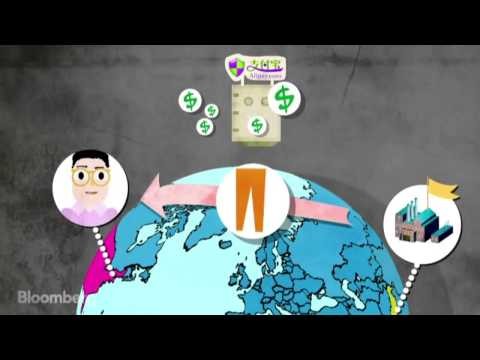How Alibaba Could Underprice Amazon and Other Things You Should Know Bloomberg Business
Post on: 16 Март, 2015 No Comment

Here’s an SAT analogy test for you: Alibaba is to China as [blank] is to the U.S.
Possible answers: Amazon, EBay or Rackspace.
The correct one? Amazon, EBay and Rackspace. And PayPal. And Yahoo.
If you’re not yet familiar with Alibaba, get ready. China’s largest e-commerce company will likely go public in 2014. Investment banks have given the company a valuation of as much as $120 billion, a market cap that would make it the third-biggest Internet company behind Google and Amazon.
That position may eventually put it in a spot hordes of companies pine for: a significant competitor to Amazon in the U.S. In addition, Alibaba recently led a $206 million investment in retail website ShopRunner, widening its presence in the country, and is moving toward a U.S. stock sale after talks with Hong Kong’s exchange broke down, a person familiar with the matter said last month.
Even so, few U.S. consumers are well-acquainted with Alibaba. Here are a few things you should know about the company.
It’s Obsessed With Marketplaces
Alibaba’s e-commerce properties lean heavily toward marketplaces, putting the company head-to-head with Amazon and EBay. Key ones include a set of English-language stores called Alibaba.com and AliExpress (where you can buy a really cute dress for $14.42). The former lets merchants exchange goods with each other, while the latter gives Chinese businesses a place to sell to a global audience. The models are similar to EBay’s but more global, with buyers and sellers exchanging goods on the sites in more than 220 countries and regions.
In China, Alibaba has Tmall, a business-to-consumer marketplace, and Taobao, its consumer-to-consumer marketplace that competes with EBay. However, Taobao gets revenue from advertising rather than taking a commission from sellers.
It Could Beat Amazon on Pricing
As China’s largest e-commerce company, Alibaba has ready access to its sellers’ supply chain of cheap Chinese goods. As Martin Pyykkonen, an analyst at Wedge Partners, notes: It’s hard to find it cheaper than on Amazon. If Alibaba could come in and, at least for Chinese-made goods, offer a cheaper price, that’s interesting. That might be their edge.
Ty Rogers, a spokesman for Amazon, declined to comment.

It’s an Umbrella for About 25 Business Units
Alibaba’s subsidiaries include eTao, its own shopping search engine; and Alibaba Cloud Computing, its data-centric cloud platform that compares with Amazon Web Services and Rackspace. It’s also affiliated with Alipay, a Chinese online payments service akin to PayPal.
It Has a Liberal Approach to Data
Alibaba calls its business units repositories of massive amounts of market information and statistical data — and it wants to share. The company is working to be the first to make all of its market data available for free to its users, giving them the ability to create smarter strategies and move with ever-changing market conditions. That would be like Amazon sharing purchasing data with third-party sellers on its site.
It Wants to Live Long and Prosper
The company, founded in 1999, wants to flourish for at least 102 years, spanning three centuries. The goal is indicative of the company’s long-term approach to business, said John Spelich, a spokesman for Alibaba.
Or in other words, get used to having them around.














